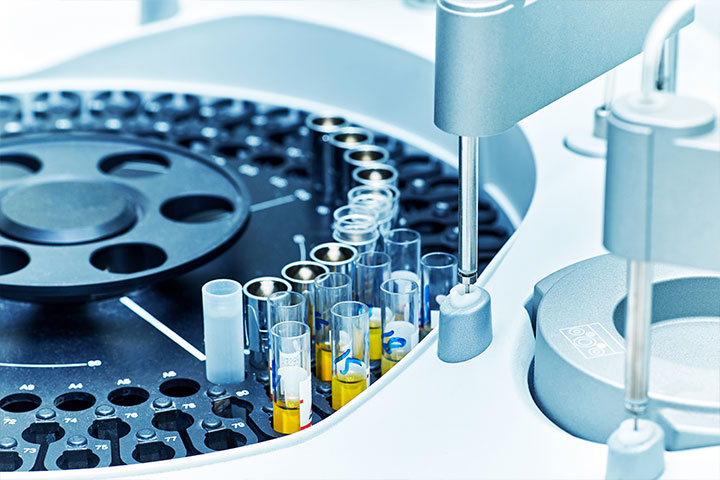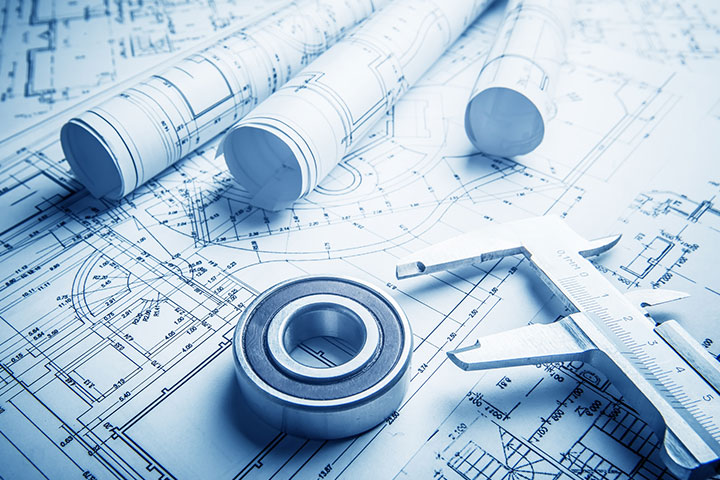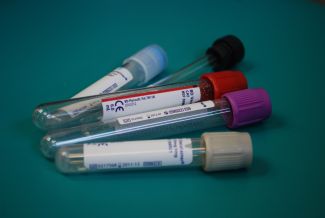The EAC certificate of the Eurasian Economic Union (EAEU) is an official document, that proofs the conformity of the products with the harmonized technical regulations of the member states of the EAEU. The products, whose conformity with the technical regulations could be confirmed by the certificate of the EAEU, may be moved and sold in the whole customs area of the member states of the EAEU.
The EAC Declaration of the Eurasian Economic Union (EAEU) is an official document that proofs, that the products meet the minimum requirements of the technical regulations of the EAEU. An EAC declaration is issued by the manufacturer, importer or an authorized representative and listed in the official register. Those products, whose conformity with the technical regulations are confirmed by the declaration, have the permission to be freely moved and sold in the whole customs territory of the member states of the EAEU.
The EAC certificate can only be issued after a quality assessment, which has to be carried out by a certification body accredited in one of the member states of the Eurasian Economic Union. The certification is conducted on the basis of technical documentations, company-internal created test reports, or rather test reports provided by accredited test laboratories, as well as on basis of a manufacturing audit on site. The certificate is printed on an official pre-printed form, which has several forgery-proof elements and is authenticated by the signature and seal of an accredited body. The EAC certificate is usually issued for “complex” products that require an extensive control by the authorities.
With the EAC Declaration the manufacturer, importer or authorized representative declares the conformity of his products with the minimum requirements of the technical regulation of the Eurasian Economic Union (EAEU). As distinguished from the EAC certificate, the EAC declaration is issued by the manufacturer or importer himself. All necessary tests and analysis are or made by the manufacturer or in some cases by the laboratory. The applicant issues the EAC declaration himself on a usual piece of paper. The EAC declaration has to be listed in the uniform register of the EAEU by an accredited certification body of one of the member states of the EAEU.
EAC certificates or EAC declarations are valid in all member states of the EAEU: Russia, Belarus, Kazakhstan, Armenia and Kyrgyzstan.
The customs union was founded in 2010 by Russia, Belarus and Kazakhstan. This means the abolition of internal borders as well as free movement of goods, services, capital and labor. The next step of the integration process was the foundation of the Eurasian Economic Union (EAEU) on January 1, 2015. There are 5 member states of the EAEU: Russia, Belarus, Kazakhstan, Armenia and Kyrgyzstan.
After the coming into force of the technical regulations of the EAEU the previous national regulations, such as GOST have been annulled. GOST certificates or declarations are valid only in Russia. Nowadays it is used only for a few products, which are not captured by the technical regulations of the EAEU. All products listed in the government decree of December 1, 2009 no. 982 are subject to the obligatory GOST certification when exported to Russia. The list of all products subject to GOST certification contains over 100 product groups, for which a mandatory GOST certification or GOST declaration is required.
The TR certification is an official proof for the conformity of the products with the national technical regulations in Russia. After the reforms of the technical settlements implemented in Russia, the new technical regulations should substitute the outdated GOST-system, which did not meet the requirements anymore and simplify the certification process. After the coming into force of the decision of the member states of the EAEU on the harmonization of the national safety standards on June 18, 2010 many russian regulations were substituted by the technical regulations of the EAEU. The national regulations only hold for areas, for which there is no regulation of the EAEU, as for example the technical regulation “On safety of blood and blood products” or TR no. 123 “On fire safety requirements”.
While GOST and TR are accepted only in Russia, the EAC proof of conformity is equally valid in all member states of the EAEU. As proof of conformity counts the EAC certificate and the EAC declaration.
All products listed in the government decree of December 1, 2009 no. 982 are subject to the obligatory GOST certification when exported to Russia. The list of all products subject to GOST certification contains over 100 product groups, for which a mandatory GOST certification or GOST declaration is required. Amongst these are for example cables, sporting arms, hunting weapons, steel ropes ecc.
EAC is the abbreviation for Eurasian Conformity and designates a system of conformity assessment, which is comparable to the european CE procedure. The EAC conformity mark is a conformity mark, which can only be attached to products, which meet all the requirements of the technical regulations of the EAEU. This is necessary to import the products in the area of the EAEU and sell them there.
TR CU means “technical regulations of the customs union”. TR ZU is the corresponding english translation and means “technische Regelwerke der Zollunion”. TR EAEU stands for “technical regulations of the Eurasian Economic Union”.
Both designations describe exactly the same procedure of conformity assessment, even though both terms are not correctly translated. In 2011 the uniform technical specifications, which are also called technical regulations of the customs union or TR CU, were introduced in the territory of Russia, Belarus, Kazakhstan and later also Armenia and Kyrgyzstan. Similar to the CE-Mark the uniform conformity mark of the customs union was introduced. This mark consists of the combination of three stylized letters “EAC” as an abbreviation for “EurAsian Conformity”.
As a result, the terms “EAC certificate” and “TR CU certificate” can be used as synonyms. The correct and complete designation of the conformity assessment would be “confirmation of conformity with the technical regulations of the customs union”. Given the length of the term it is not surprising that the designication often is shortened by “TR CU Certification” or “EAC certification. Strictly speaking the term “Certification” would be wrong in this context, as there are to mandatory conformity assessment procedures: The EAC certificate and the EAC declaration.
An important step in the course of the economic integration between Russia, Belarus and Kazakhstan is the harmonization of the technical specifications. Various national specifications such as GOST-R and TR in Russia, STB in Belarus or the kazakh GOST-K norms are substituted by the standardized technical regulations. The objective is also to harmonize the technical regulations of the EAEU with the european standards. The technical regulations set the minimal requirements for the safety of the products. The conformity with the regulations is proven by the EAC certificate, EAC declaration or state registration.
Until now there have been adopted 48 technical regulations. The regulations have been introduced for the most important products, which amongst others belong to areas such as mechanical engineering, textile industry, chemical products, food, vehicles and furniture. Products, for which no technical regulation of the EAEU has been elaborated yet, still underlie the conformity assessment according to national norms and the standards of the technical regulations of the respective member state.
Some products, which both are sold for the first time on the market of the EAEU and underlie the technical regulations have to proof their conformity with the technical regulations. Those product, whose conformity has been confirmed, has to be labelled with the EAC conformity mark. But there are some products, which do not only underlie the technical regulations, but also some other norms such as fire safety, type approval, FSB notification ecc.
The EAC mark is a conformity mark, that proves the conformity of the products with all requirements of the harmonized technical regulations of the Eurasian Economic Union (EAEU). The objective is to protect human lives, their health and of the environment as well to prevent misleading information being passed on to the consumer. All products that have successfully passed the conformity assessment procedures can be labelled with the EAC mark. Afterwards the products may be imported into the area of the EAEU and be sold. The EAC-mark is therefore a mandatory condition in order to launch a product on the market of the EAEU.
All requirements for product marking (specifications of the product, its properties ecc.) are determined by the uniform technical regulations that specify the rules for issuing the EAC certificate or the EAC declaration.
According to current law and in accordance with the technical regulations of the economic union only entrepreneur residing in the territory of the Eurasian Economic Union may apply for an EAC certificate or the registration of an EAC declaration. Those companies that are located outside the EAEU, for example in Germany or other countries of the EU, are not authorized to apply or carry out a conformity assessment. This is because the enforcement by appropriate Russian regulatory authorities can lead to difficulties if foreign companies violate quality and safety standards.
Those problems can be avoided by employing the service of an authorized representative.
Only a company residing in the territory of the Eurasian Economic Union is authorized to apply for EAC certification or the registration of an EAC declaration. Therefore a contract between the manufacturer and the authorized representative has to be concluded. The contract is part of the documents that are required for the conformity assessment procedure.
In case of EAC declaration the manufacturer himself confirms, that the products meet the minimal requirements. In case of EAC certification instead, the product is assessed by an accredited test laboratory of the customs union. In case of a serial production a manufacturing audit is carried out by the certification body.
There are different schemes of conformity assessment. Each scheme determines, how the applicant has to proceed in order to have the conformity of his products confirmed. The scheme is specified by the certification body or the applicant, depending on, whether the product underlies the EAC certification or EAC declaration. When determining the schemes following characteristics are crucial: product properties, type of shipment, risk potential of the product and the degree of involvement of the certification body or the test laboratory.
In order to be able to sell products in the territory of the customs union, the manufacturer has to read carefully the technical regulations (TR CU or TR EAEU). The TR specifies which products fall under those regulations und which not and in what form the conformity of the products has to be confirmed. Changes of existing product lists, for which a confirmation of conformity is required, are published on the official website of the customs union of the Eurasian Economic Union. Please contact a company with professional experts, who can give you advice and the right recommendations. Schmidt & Schmidt would be pleased to help you to figure out under which technical regulations your product falls.
Yes, it is possible provided that at least four numbers of the customs tariff number are identical.
In the declaration or the certificate only one manufacturer can be indicated. Other plants can be listed as subsidiaries in the attachment.
It is not possible to make any changes on the EAC certificate or the EAC declaration. The only possibility is to have a new EAC certificate or a new EAC declaration issued. But there are some exceptions for the EAC declaration. An applicant can have a new EAC declaration issued on the basis of already existing test reports without having to go through a complete conformity assessment procedure again. The old EAC declaration will be withdrawn.
This is possible only in the following cases:
- correction of typos
- change of legal form, location or contact details of the applicant
- change of legal form or location of the manufacturer
- change of customs tariff number
Generally, a new certificate or declaration has to be issued when the period of validity expires. Some technical regulations offer the possibility to renew the document under certain conditions. This is only applicable for certificates, but not for declarations.
An power of attorney from the owner of the declaration or certificate (from the manufacturer or its authorized representative) as well as a copy of the certificate of conformity gives the right to use it.
Informations on the national register are published on the official website of the Eurasian Economic Commission http://www.eaeunion.org/. The service area contains information on countries of the customs union as well as links leading to registers of certification bodies and accredited test laboratories. Each country has its own register.
You can verify the authenticity of certificates or declarations in Russia in the register on the website of the Federal Accreditation Authority (Rosakkreditazija). https://pub.fsa.gov.ru/ral.
For an EAC conformity assessment the products shall be assessed in an accredited laboratory on the territory of the customs union. On the homepage of Rosakkreditazija information about approved laboratories can be looked up: http:/fsa.gov.ru/use-of-technology/elektronnye-reestry/.
Products that shall be shipped as samples in the territory of the customs union, require a letter of the testing laboratory. This document shall show the necessity of importing these products in the territory of the customs union as samples, the quantity of samples and their properties.
If a product does not pass the testings, it is not allowed to be labelled with the EAC marking and therefore can not be sold in the territory of the customs union. The notes of the certification body and the testing laboratories shall be taken into account and eventual deficiencies shall be removed. The product must then go again through the conformity assessment procedure.
In case of a serial delivery, the document is valid up to 3 or 5 years, depending on the specifications of the respective technical regulations. It is also possible to apply for an EAC certificate just for one year, for single shipment or for contract bounded batches.
At the request of the manufacturer, a certificate can be issued instead of an EAC declaration. However, an EAC certificate cannot be replaced by a declaration.
Each technical regulation determines, what documents has to be presented. For TR CU 004/2011 and TR CU 020/2011 the technical passport and the instruction manual shall be submitted. TR CU 010/2011 requires in addition to the passport and the instruction manual a safety justification. All documentations shall be in Russian or in the official language of one of the member states.
The technical passport is an operational document that is issued according to GOST norm 2.001-2013. The passport contains important information on the product, as its technical properties, the lifetime and the storage time, the guarantee of the manufacturer, indications on packaging, the repair work, the warranty, the operation as well as its disposal. The passport is created by experts according to the requirements of the Gost norm 2.601-95 and the respective technical regulation.
An EAC declaration can be issued within 2 or 3 weeks, depending on the scheme applied. The certification procedure is more complicated and time consuming. In case of a type approval it can take up to 8 months.
It is frequently asked how much an EAC certificate or a EAC declaration cost. Unfortunately there is no blanket answer to this question. But there are a few parameters that influence the costs of an EAC conformity assessment: the properties, the characteristics and the risk potential of the product; the technical regulation applied; the form of conformity assessment: EAC certification or EAC declaration; the declaration or certification scheme; the requirements of the technical regulation; the degree of involvement of the accredited inspection body; the type of delivery - serial production, single time delivery, contract bounded batches; other approvals that might be required for the product: metrological approval, FSB notification, state registration and FAC certification.
During the conformity assessment of products that are subject to EAC certificate there is a manufacturing audit required by the technical regulations of the Eurasian Economic Union. It concerns especially the EAC certification in case of serial production. The audit is carried out by an accredited certification body on site. The objective of the audit is to determine, whether the manufacturing process meets the requirements determined in the technical regulation.
Generally the answer is no. The substitution of an audit by an ISO 9001 certificate in case of serial production is only allowed in the technical regulations TR CU 017/2011 and TR CU 008/2011 certification scheme 2c.
Surveillance is a systematic iteration of conformity assessment activities as a basis for maintaining the validity of the EAC certificate. A surveillance of conformity assessment is only necessary for EAC certificates and not for EAC declaration.
The scope of the inspection is different for each technical regulations. The surveillance of conformity assessment can be carried out or in form of a manufacturing audit or in form of testings of the samples.
The surveillance of conformity assessment is carried out once a year. The scheduled surveillance is normally conducted at the earliest 6 months after the issuance of the EAC certificate. After 12 months at the latest, a new inspection is necessary.
At first it must be assessed, whether the product falls under the national regulations. Besides the technical regulations of the EAEU also national norms and regulations of the member states can be applied. Even if the product is not subject to EAC certification, it still might require a GOST-R certification for Russia, a GOST-K certification for Kazakhstan or an STB for Belarus. However, the national certifications only give the permission to sell the products in the respective country.
For customs clearance an exemption letter is recommended: It is necessary for the import of goods to Russia, if the products neither underlie the mandatory GOST certification nor the EAC certification.
An exemption letter for the customs is an official letter of the accredited certification body which certifies that the imported goods do not belong to the group of products that are subject to mandatory certification.
The exemption letter is always necessary when the HS classification of goods can not be clearly identified. In such case an exemption certificate of “VNIIS” has to be submitted.
The Exemption Letter is an official statement issued by experts of the notified body, which confirms that goods are not subject to compulsory GOST, TR certification, or EAC certification according to the technical regulations of the Eurasian Economic Union – TR EAEU.
This certificate is required in particular, when product classifications are very complex and there is no clarity as to whether the product is subject to the certification obligation or not. Moreover, an exemption letter may be required for import into the customs territory of Russia by customs officials.
The consequences in case of non-compliance of rules and requirements of the technical regulation of the customs union as well as in case of sales of products without the respective confirmation is determined by the national legal act of the member states of the union.
In the Russian Federation fines has to be paid, when importing and selling products without a certificate or declaration of conformity.
It is the main document, that is required when transporting goods over the border of the customs union. The customs declaration contains information on the goods and their customs value. The registration is certified by a customs officer and serves as permission for crossing the border. Commodities can not be shipped in the territory of the customs union without showing this document. The customs declaration includes information:
- about the forwarder and recipient of the commodity
- about the delivery conditions
- about the country of origin of the commodity when importing and the destination when exporting
- about the customs value of the commodity
- about the transport route of the commodity
- about the currency
According to the Decision of the Eurasian Economic Union of December 25, 2012 no. 293 in the declaration/certification following details are required:
- information about the certification body , that issued the certificate/the declaration (name, address, indications on accreditation)
- information about the applicant: name, address, phone number, e-mail address
- information about the product: name, type/serial number/model
- customs tariff number
- name of the respective technical regulation
- information regarding the documents as basis for the conformity assessment (test reports, certificate of quality management systems ecc.)
- additional information: storage conditions, expiration date, packaging ecc.
- stamp and signature of the expert and the head of the certification body
- in the declaration also the name of the managing director of the applicant
Information that does not fit on the main paper of the document (for example subsidiaries or product types) can be attached separately to the document.
There are 3 types of shipment:
- serial delivery: the EAC declaration or EAC certificate is valid for all products produced in a similar way by the same manufacturer. In case of a serial production the amount of products that can be imported is not limited.
- Batch delivery: A certain number of units, that is shipped within the framework of a supply contract. It is a delivery of the same forwarder to the same recipient in the customs union. The conformity assessment certification is valid until the batch has been sent successfully. The same certificate or declaration can not be used for the same amount of commodities again.
- Single unit delivery: the product is shipped for one time and with the amount of one single unit in the territory of the EAEU. As the same time the importer does not have any plans for further delivery of those products.



















































